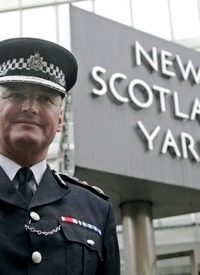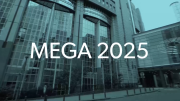
Using the War on Terror as a pretext, Scotland Yard has advised the owners and administrators of internet cafes and other public web access providers in London to monitor their customers’ surfing habits in order to keep an eye out for any “suspicious behavior.”
In the double-speak typical of one advocating the elimination of civil liberties through the insidious and incremental expansion of police power, a spokesman for the Metropolitan Police said, “It’s not about asking owners to spy on their customers, it’s about raising awareness.”It’s about using civilians to spy on each other, thus effectively expanding the size of the police force to include thousands of business owners who now feel empowered to search hard drives and histories under the auspices of the crown.Of course, the average terrorist is probably a bit more computer savvy than to leave a digital trail of incriminating information on a public computer. “You would expect a cybercriminal who had decided to use a public computer to pretty much dust off their fingerprints,” said Graham Cluey, spokesman for Abingdon, England based computer security software vendor, Sophos.Mr. Cluey’s assessment is correct. As any average teenager knows, it takes just clicks of a mouse to erase the browsing history and erase footprints of offensive websites. It seems unlikely that your average internet café owner would be as handy at retrieving the relevant data, however. For instance, distinguishing which user visited which sites would take remarkable forensic skill, beyond the ken of most small business owners.Naturally, the unspoken target of such schemes is thought to be Muslim youth. Simon Davies, director of UK-based privacy group supposes that there will be a spate of “suspicious activity” on the part of Muslims being reported by café owners. There will be no oversight, no due process, and no presumption of innocence if an overzealous owner decides to poke around the email accounts and downloaded files of someone who merely fits the profile of a terrorist.“We don’t expect that our calls from a public phone would be monitored, any more than we should expect our emails to be monitored. As citizens we have to hold the line that there is a fundamental right of privacy of communication,” Davies opined.While very noble, Mr. Davies’s assumptions are founded in a time long, long ago before the growth of government agencies tasked with monitoring and cataloging the minutest and insignificant movements, from keystrokes to DVD rentals, with the ostensible goal of thwarting global terrorism.For its part, the police encourage internet café owners to maintain this heightened level of vigilance in order that they might stymie terrorist plots being hatched right under their noses. Spokesmen for the police pointed to the use of internet café computers in the coordination of a plot to secrete liquid explosives onto planes bound for the United States.In what can only be described as the pot calling the kettle black, a committee of Parliament reported last week that some in the government were stepping beyond the bounds of liberty in their effort to combat global terrorism. The report asserted that too often the civil liberties of Her Majesty’s subjects were “squeezed out by the imperatives of national security and public safety.” Pretty close. The adjective “purported” wouldn’t be amiss in that sentence, however.Right now, apart from prodding cybercafé managers and staff to take necessary precautions to head off evil, the only visible manifestations of the UK government’s new initiative are imposing emblazoned desktop images of a police badge meant to dissuade the e-vil, and purple posters tacked onto the walls of these establishments with the shield of Scotland Yard again prominently featured and a stern warning to customers to avoid viewing or accessing sites that contain “inappropriate or offensive content.”The vagueness of that language is of note. Today, perhaps most would understand what is meant by “inappropriate and offensive content” vis-à-vis the threat of terrorists allied with or sympathetic to the anti-Western goals of Muslim extremists such as al Qaeda.However, in a decade from now when Britons (and Americans) have become inured to the round the clock observation of the never blinking eye of government (a la Orwell’s 1984), perhaps a more nuanced notion of appropriateness will have developed. It could be that unpopular political leanings or unsanctioned religious views will be as odious then as hatred of the West and jihads are now.
Photo: AP Images



